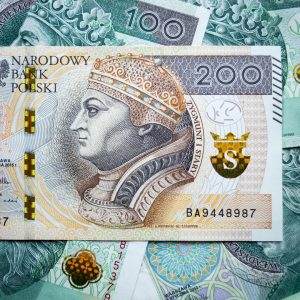The Ultimate Guide to Choosing the Best Forex Broker on the Top List
When it comes to trading in the foreign exchange market, one of the most crucial decisions you will make is choosing the right forex broker. A forex broker acts as an intermediary between you and the market, providing the necessary platform for executing trades. With so many brokers available on the market, it can be overwhelming to select the best one for your trading needs. In this guide, we will explore the key factors you need to consider when choosing a forex broker from the top list.
Regulation and Security
The first and foremost factor to consider when selecting a forex broker is regulation and security. It is essential to ensure that the broker you choose is regulated by a reputable financial authority. Regulatory bodies such as the Financial Conduct Authority (FCA) in the UK, the National Futures Association (NFA) in the US, and the Australian Securities and Investments Commission (ASIC) in Australia enforce strict rules and regulations to protect traders’ interests.
Regulation ensures that brokers adhere to certain standards, including segregating client funds from their operational funds, maintaining adequate capital requirements, and providing a fair trading environment. Additionally, regulated brokers offer a level of security through measures like encryption technology to protect your personal and financial information.
Trading Platform and Tools
The trading platform provided by a forex broker plays a crucial role in your trading experience. A user-friendly and efficient platform can enhance your ability to execute trades quickly and effectively. Look for brokers that offer popular platforms like MetaTrader 4 (MT4) or MetaTrader 5 (MT5), as these platforms are widely recognized and offer a range of advanced trading tools and features.
In addition to the trading platform, consider the availability of other tools and resources offered by the broker. Educational materials, market analysis, and real-time news updates can greatly assist you in making informed trading decisions. Some brokers also provide additional features such as copy trading, where you can automatically replicate the trades of successful traders.
Spreads and Fees
Another crucial factor to consider when choosing a forex broker is the cost of trading. Brokers typically make money through spreads, which are the differences between the buy and sell prices of a currency pair. Tight spreads are desirable, as they reduce the cost of trading.
In addition to spreads, be aware of any additional fees charged by the broker. These may include commissions on certain types of trades, account maintenance fees, or withdrawal fees. It is important to carefully read the broker’s fee schedule and understand the costs involved before opening an account.
Leverage and Margin Requirements
Leverage allows traders to control larger positions with a smaller amount of capital. It can significantly amplify potential profits but also increases the risk. Different brokers offer varying levels of leverage, so it is essential to understand the leverage offered and its associated risks.
Margin requirements determine the minimum amount of capital you need to have in your trading account to open and maintain positions. Higher margin requirements can limit your trading opportunities, especially if you have limited funds. Consider your trading strategy and risk tolerance when evaluating a broker’s margin requirements.
Customer Support and Service
Responsive and reliable customer support is essential when trading forex, as technical glitches or account-related issues can occur. Look for brokers that offer multiple channels of communication, such as phone, email, and live chat. It is also important to consider the availability and responsiveness of customer support, especially during market hours.
Additionally, consider the broker’s reputation and track record in providing excellent customer service. Reading reviews and testimonials from other traders can give you insights into the broker’s reliability and commitment to customer satisfaction.
Account Types and Minimum Deposit
Different brokers offer varying types of trading accounts to cater to different trading needs. Consider the account types offered by the broker and whether they align with your trading style and preferences. Some brokers offer demo accounts, which allow you to practice and test your trading strategies without risking real money.
Minimum deposit requirements vary among brokers, with some requiring a significant amount and others offering accounts with no minimum deposit. Assess your budget and risk tolerance to determine the minimum deposit that suits your trading needs.
Conclusion
Choosing the best forex broker from the top list can be a daunting task, but considering the factors mentioned above will help you make an informed decision. Prioritize regulation and security, evaluate the trading platform and tools offered, assess the cost of trading, leverage, and margin requirements, and consider the level of customer support provided. By carefully considering these factors and conducting thorough research, you can select a forex broker that meets your trading requirements and enhances your overall trading experience.





